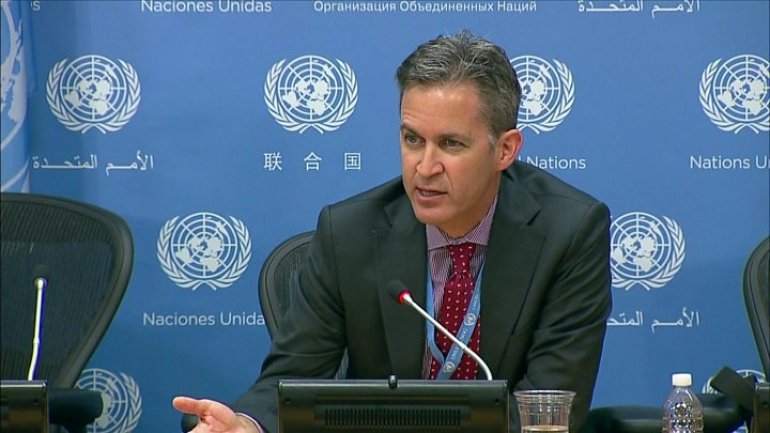UN urges Iran to stop harassing BBC Persian staff
 foto: BBC Persian staff treatment 'concerns' UN Special Rapporteur
foto: BBC Persian staff treatment 'concerns' UN Special Rapporteur
A United Nations expert has urged Iran's government to stop harassing BBC Persian staff and their families.
David Kaye, the special rapporteur on freedom of opinion and expression, confirmed he had received a complaint from the BBC about their treatment.
It came after Iran initiated a criminal investigation into 150 BBC staff, former staff and contributors for "conspiracy against national security".
A subsequent court order froze the assets of the 150 staff involved.
That means they cannot inherit family assets and prevents them and their families from selling property or cars.
BBC director general Tony Hall said Iran's action was "an unprecedented collective punishment of journalists" and against fundamental human rights.
BBC Persian broadcasts news from London on TV, radio and online. It reaches an estimated audience of 18 million every week despite being banned in Iran.
In a statement issued on Wednesday, the BBC said its BBC Persian staff and people associated with them had been subjected to a "sustained campaign of harassment and persecution" since the disputed 2009 presidential election, when the Iranian government accused foreign powers of interference. Examples it cited included:
- The sister of a journalist was held in Evin prison for 17 days and forced to plead with the journalist via Skype to stop working for the BBC or spy on colleagues
- Many elderly parents of BBC staff have been interrogated, including being questioned late at night
- BBC staff not being able to visit their dying parents for fear of imprisonment or being prevented from leaving Iran
- Reputations of staff attacked in the press and on social media with false and defamatory allegations including claims of sexual impropriety or sexual acts which are illegal in Iran, including those which attract the death penalty
The BBC complaint to the UN cites what it describes as numerous severe breaches of Iranian obligations under various international treaties to which it is signatory.
Read more BBC